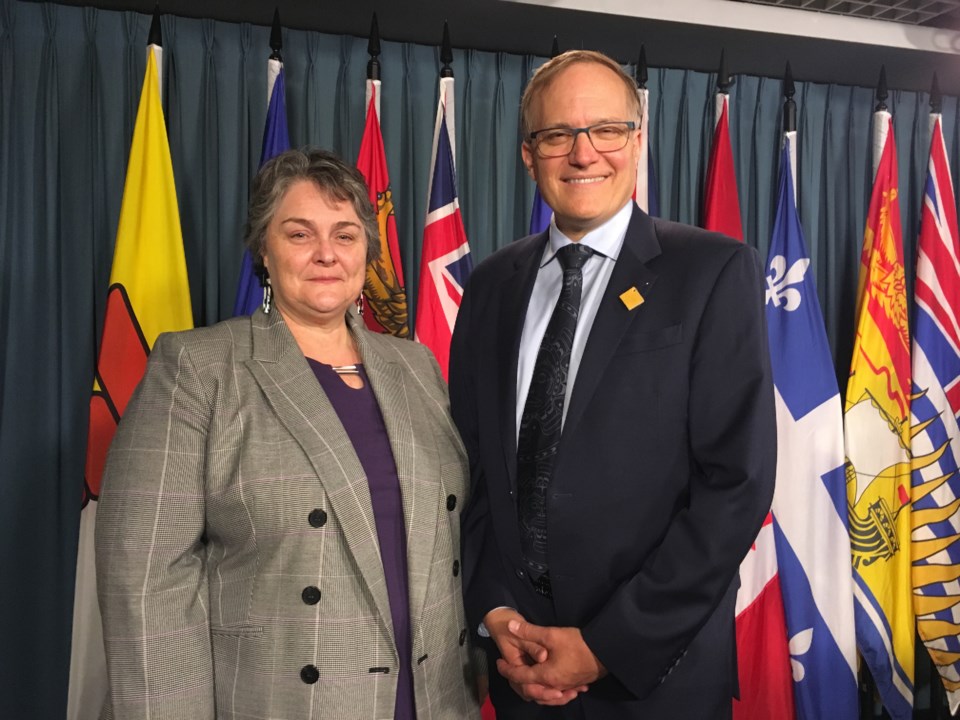A made-in-New West petition aims to improve the lives of some of Canada’s most vulnerable kids.
The Elizabeth Fry Society has launched a petition aimed at helping kids from coast to coast, and is encouraging Canadians to support its petition.
“We have a petition that is currently before the House of Commons calling on the government to take certain steps to help remove some barriers that are in place that are impoverishing Canada’s poorest kids,” said Karen McCluskey, communications officer with the Elizabeth Fry Society of Greater Vancouver. “There is four components to it. It’s born-and-bred in New Westminster, but the impact is national.”
New Westminster-Burnaby MP Peter Julian, who has heard about issues of homelessness and child poverty from his constituents, has sponsored the petition.
“We cannot be satisfied by the current situation,” he said in a press release. “The Government of Canada must uphold its responsibility to guarantee equal access to federally funded benefits, services and programs so children with informal or less stable living arrangements are not further marginalized.”
In September, Julian tabled a petition with thousands of signatures calling on the Government of Canada to uphold its international commitment to support all children in Canada equally, regardless of how and where they live.
Shawn Bayes, executive director of the Elizabeth Fry Society of Greater Vancouver, has called on the federal government to uphold its responsibility as a signatory of the United Nations Convention on the Rights of the Child to ensure children across Canada have equal access to federally funded financial benefits and supportive programs and services.
“As a society, it’s our collective responsibility to ensure the basic needs of every child in Canada are met,” she said. “Right now, there are barriers and inconsistencies in the way federally funded benefits and services are delivered, which leaves vulnerable children like those who are homeless, have an incarcerated parent or who are affected by neonatal substances are barred, delayed or disqualified from the supports they desperately need. That must change.”
The petition to ensure the rights of vulnerable, highly mobile children includes four requests of the federal government:
* Remove barriers that children living in less stable home environments, such as those whose parents are homeless, incarcerated or have addictions, have in qualifying for federally funded benefits designed to support children, like the Canada Child Benefit.
* Recognize and provide for children living with parents in housing provided through Housing First, a federally funded Homelessness Partnering Strategy.
* Set standards for provincially or territoriality delivered child benefits that are funded federally, so kids in the same situation get the same money no matter where they live in Canada.
* Recognize and provide programs to support children whose parents are homeless, incarcerated or have addictions. (The Elizabeth Fry Society states that Canada is the only Commonwealth country that does not do this for children whose parents are in prison).
People who support these changes can sign the Parliamentary e-petition at https://petitions.ourcommons.ca/en/Petition/Sign/e-1840. More information about the petition is available at [email protected].
McCluskey said providing funds and services for homeless children and making sure they have a roof over their head at night can help fend off lifelong impacts to their physical and mental health, assist kids in positive relationships with their peers and allow them get an education because they’re not always moving.
“For them, that is life changing,” she told the Record. “We know that the component of recognizing and supporting children of incarcerated parents will also be life changing. It will mean, quite literally, that some children will be diverted from becoming involved in the justice system as adults. We know that from research done in other countries. That is a societal benefit, obviously, as well. All of these things have the potential to change the most vulnerable children’s lives for the better, and give them the opportunity to live up to their full potential.”
McCluskey said the Elizabeth Fry Society learned about the issue through people who came to its office for help.
“It’s become clear that this is not a one-off family issue,” she said. “This is a systemic issue that impacts families right across the country. We honestly do believe for many of the things we are calling for, the intention of the government is to help, but that the intention is not being fulfilled because the systems are being built for more middle-class families.”
The Elizabeth Fry Society believes Canadians and the federal government have an opportunity – and a desire – to help vulnerable children.
“With some of these things there are systemic impacts of these marginalizing things – homelessness, addiction, incarceration. They pass down. They are generational in some cases,” she said. “What we are trying to do is stop that, to break that legacy and to try and help kids.”



